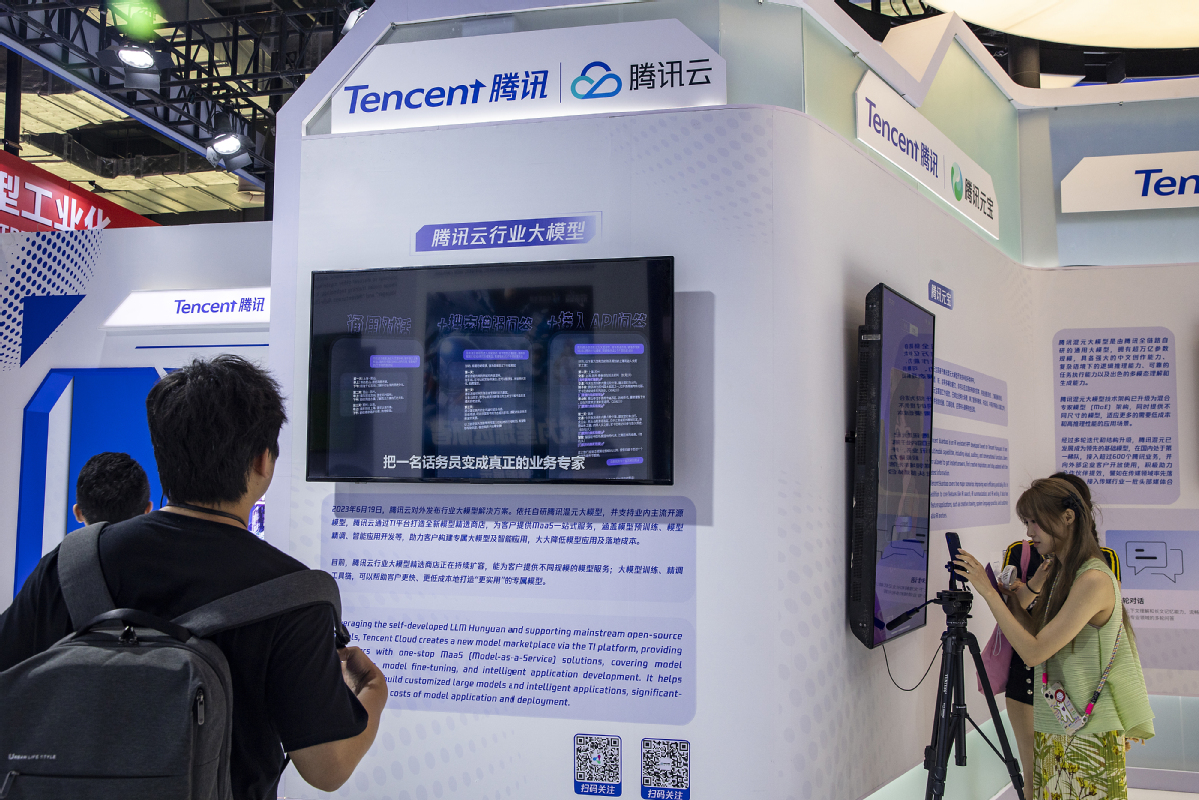Cloud tech providers join global march


Amid the growing momentum of Chinese companies going global, domestic cloud service providers are also progressively making further forays into international markets.
Tencent Cloud's international business has seen double-digit growth over the past three years, delivering impressive performances in Southeast Asia, Japan, the Middle East and Europe, said Li Qiang, vice-president of Tencent.
Li said Tencent Cloud's infrastructure spans 21 regions across five continents, operating over 3,200 global acceleration nodes and offering solutions across various sectors such as the internet, gaming, finance, tourism, autos and retail.
"Going global" has become one of the paramount strategies for Tencent Group and Tencent Cloud, he added.
Li said the tech giant will also expedite the international expansion of its artificial intelligence technology.
He made the comments in an interview with China Daily before the 2024 Tencent Global Digital Ecosystem Summit, which kicked off on Sept 5 in Shenzhen, Guangdong province.
The accelerated pace of cloud service internationalization is closely intertwined with the overall growth of Chinese enterprises going global. In 2023, the amount of Chinese capital going global increased by 11 percent year-on-year, with a 23 percent growth in the number of enterprises, according to consulting firm Bain & Company.
The mode of internationalization is also evolving, shifting from launching products to platform internationalization, together with the holistic system of Chinese experience and practice.
According to statistics released by the Ministry of Commerce in 2022, among enterprises going global in the past five years, the retail and manufacturing sectors accounted for the largest proportion, while the information and software services sectors exhibited the fastest growth.
However, Li found that Chinese enterprises are encountering new challenges in their globalization efforts due to rising barriers in international trade. One issue is how to effectively implement the high-level digital standards of their factories in China in emerging economies.
"An increasing number of businesses are contemplating local recruitment and supply chain establishment, leading to a rising demand for top-tier software services in management processes," he added.
One example is Tencent's cooperation with automaker GAC Group. Tencent established the latter's digital infrastructure system tailored for Southeast Asia, and its mass production of internet of vehicles in the Thai market this year.
As of end-June, Tencent had been supplying overseas cloud services to over 30 auto manufacturers and mobility tech companies.
Apart from joining hands with Chinese companies, Li is also confident of attracting clients overseas, a segment which has already seen rapid growth.
Sun Wei, senior consultant at market research company Counterpoint, said the global expansion for such companies is more Asia-focused, due to geopolitical tensions and tighter data control policies elsewhere.
Sun said one of the main strategies of their expansion at the current stage is price reduction. Taking Alibaba Cloud as an example, she said it has implemented two significant rounds of price cuts in both domestic and overseas markets since March.
She said they are also "enhancing their technological offerings, increasingly focusing on offering value-added services, such as AI-driven cloud solutions, specialized enterprise services in vertical markets as well as strong engineering capabilities for rapid scaling, to differentiate themselves from their Western competitors".
AI infrastructure and technology have become the new engine in the international expansion of Chinese software service providers. Alibaba Cloud and Huawei Cloud unveiled their AI "going global" initiatives in May of this year and November of last year, respectively. Alibaba Cloud is also investing in establishing new data centers in five countries worldwide, emphasizing the development of AI infrastructure.




































